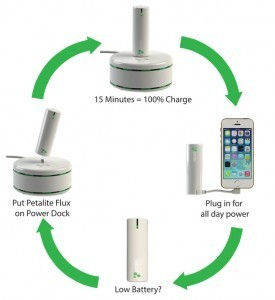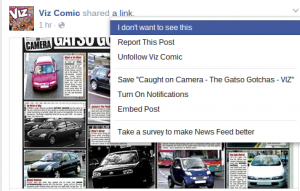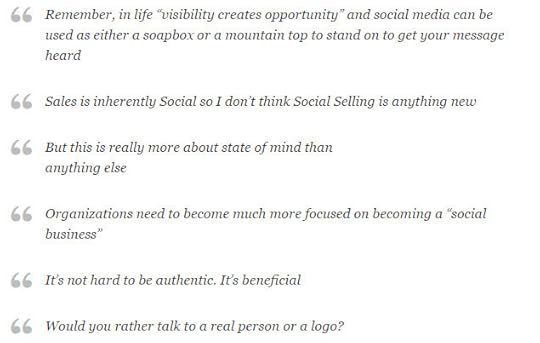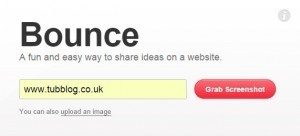Richard Tubb's Blog, page 87
December 12, 2014
CardsGone – Guard and cancel lost or stolen credit cards

Every Friday I try to share one of my favourite finds of the week – a web-site, tool or app that has impressed me.
My Friday Favourite this week is CardsGone - a free safe tool to guard and cancel lost or stolen UK credit, debit & membership cards.
Cancel Lost or Stolen Credit Cards
If you’ve ever lost a credit card, then you’ll know the sinking feeling that accompanies the realisation that your credit card is no longer in your wallet or purse, and frantic panic to quickly cancel the card and organise a replacement with your credit card company.
As a frequent traveller who has before now lost a card while abroad, it pays to have all the information you need to quickly cancel a card before any damage can be done.
U p until last week, I paid a company an annual fee to keep hold of all my credit cards details and in the event of a loss of card, telephoned them for details on what to do next.
p until last week, I paid a company an annual fee to keep hold of all my credit cards details and in the event of a loss of card, telephoned them for details on what to do next.
With CardsGone – a site put together by MoneySavingExpert Martin Lewis – you can quickly select your credit, debit and membership cards and the website will instantly compile all the phone numbers you need in the event you suffer a lost or stolen card. There is no personal data stored and the service is offered for free.



November 21, 2014
Petalite – The World’s Fastest Charging External Battery
 Every Friday I try to share one of my favourite finds of the week – a web-site, tool or app that has impressed me.
Every Friday I try to share one of my favourite finds of the week – a web-site, tool or app that has impressed me.
My Friday Favourite this week is Petalite – the World’s fastest charging external battery which charges in just 15 minutes!
Petalite – The worlds fastest charging external battery
 The Petalite Flux is the World’s fastest charging external battery, charging to 100% or 2600mAh in just 15 minutes.
The Petalite Flux is the World’s fastest charging external battery, charging to 100% or 2600mAh in just 15 minutes.
After spending the best part of October and November this year travelling with the IT industry’s Conference silly season, I know all too well what it’s like for my Nexus 5 Android Smartphone to run out of charge at the most inconvenient moment.
I also know what it’s like to wake up the next day having forgotten to put my Smartphone on charge overnight!
The Petalite is an external battery that takes just 15 minutes to charge (20x faster than USB) and then provides a full day’s charge to most Smartphones – including Android and iOS devices – meaning you can stay connected even when you aren’t near a power socket or don’t have time to plug-in.
Pre-Order a Petalite
Founded by Leigh Purnell, Petalite is a start up business in my home-town of Birmingham, UK.
The Petalite Indiegogo campaign is now live with early-bird access closing shortly. I’ve no doubt the campaign will meet its targets, and with a Petalite charger and battery starting at just $64 I’d suggest getting in quickly to pre-order your Petalite! I’ve already ordered mine!
Thanks to Mike Brooman of Vanti for the introduction!



November 10, 2014
Should You Quit Facebook?
 I have a love/hate relationship with Facebook – and I know I’m not alone in feeling this way.
I have a love/hate relationship with Facebook – and I know I’m not alone in feeling this way.
On one hand I think Facebook is a powerful way of staying in touch with friends, family and acquaintances – enabling you to stay current with what folks are up to and helping you to build stronger relationships with those who you consider important to you.
On the other hand, I’d suggest that Facebook can expose you to very negative influences, from snarky comments, to others inflicting their political and religious beliefs upon us. Also consider that most of us typically use Facebook status update to display the best parts of our life – our highlight reel. This “highlight reel” approach can lead us to compare what we consider to be our own dull and boring lives to the perceived brilliant lives others tell us about through their Facebook feed. Feelings of jealousy and inadequacy rear their ugly heads.
And let’s be honest – at a more basic level, Facebook can also be a complete and utter waste of time. Consider for a moment if you spent just half of the time you currently spend mindless “liking” posts on Facebook to instead learning a foreign language – besser, ja?
Should You Quit Facebook?
All of which leads to the question, “Should You Quit Facebook?”
More than once I’ve considered quitting Facebook altogether, and I know lots of people who have.
“It’s all depressing/irritating/annoying”, “It’s a waste of time!” and “It’s full of rubbish anyway” are just three justifications that you can offer for quitting Facebook.
Except those above statements can equally apply to any modern source of media. TV can be “full of rubbish”. Listening to the Radio can be “Depressing/Irritating/Annoying”. Social Media as a whole can be a complete and utter waste of time – if you don’t use it properly.
Any medium that becomes popular and widely adopted will suffer from problems of trying to please the masses while simultaneously annoying the masses too.
Quitting Facebook is one solution, although I do think that is rather like chucking out your TV because you don’t like watching those awful reality shows. If most TV annoys you, try buying yourself a Personal Video Recorder (PVR) and record only the shows you like to watch when you’d like to watch them. By filtering the content and only choosing the bits that are relevant to you, you’ll find the medium of TV much more valuable and fun. Mindlessly watch what is served up to you, and you’ll inevitably become irritated/annoyed/depressed with what you see.
Instead, consider ways you can filter and customise Facebook to deliver to you the bits you like (important friends updates, news from groups you are passionate about, genuinely funny videos of Cats playing pianos) and never expose you to the bits you don’t like (thinly vieled racism or ignorance disguised as religious or political rallying, negative “friends”, annoying videos of Cats playing pianos).
How can you do this?
Improve the Facebook News Feed
The first step is to improve the Facebook news feed you receive. Facebook tries its best to show you updates from people, groups and companies that it thinks is important to you, yet what you often see is the stuff you don’t want to see.
You can change this so you see things you actually want to see, rather than the dross. It’s a simple process of accentuating the things you want to see more of, and de-emphasising the things you’d prefer not to see.
Click “Like” on status updates from friends and groups that you genuinely like. Not like a bit, but like a lot. There’s too much brilliant stuff out there for you to like the mediocre as well. Don’t rely on the news feed alone – directly visit pages from friends and groups and scroll through their recent updates “liking” the things you genuinely like. Pretty quickly you’ll see more of this stuff and less of the dross you don’t like on your main news feed.
 If you see something your news feed that you don’t like, then click on the little arrow in the right hand corner of the item and click on “I don’t want to see this”. You’ll see less of that stuff going forward.
If you see something your news feed that you don’t like, then click on the little arrow in the right hand corner of the item and click on “I don’t want to see this”. You’ll see less of that stuff going forward.
If you consistently see stuff from a person or group that you don’t want to see, then click “Unfollow” and you’ll never see their stuff again – and they’ll never be notified of this.
This also works for those annoying memes, “hilarious” images and chain letters you see shared by friends. Click on the “Hide All from” button and it doesn’t matter which of your friends wants to share them in the future, you won’t see them on your News feed.
Don’t visit Facebook any more
It’s possible to keep up to date with your friends via Facebook without visiting the Facebook web site or using the Facebook app. You can like their pictures, see important status updates and send them birthday wishes – all from a 3rd party app called EasilyDo.
 EasilyDo is a free app available for Android and iOS and is one of a new category of personal Digital Assistants that is around to make your life easier by organising your electronic data. For instance, Easilydo can automatically add your hotel and flight email reservations to your calendar, notify you of any new bills you receive via email and much more besides. I personally use Easily.do and it’s a great timer saver.
EasilyDo is a free app available for Android and iOS and is one of a new category of personal Digital Assistants that is around to make your life easier by organising your electronic data. For instance, Easilydo can automatically add your hotel and flight email reservations to your calendar, notify you of any new bills you receive via email and much more besides. I personally use Easily.do and it’s a great timer saver.
One of the other features EasilyDo offers is to alert you to any important updates shared by friends on Facebook, as well as highlight any photographs you’ve been tagged in and display a daily summary of the Facebook pictures it thinks you’d like to see. This means you can see (and comment and like) on a load of Facebook activity all from within the Easily.do app and all without ever having to visit Facebook directly. EasilyDo even suggests update text you should use!
If you’re somebody who is easily distracted by the things Facebook serves up for you and find a “quick visit” to Facebook can often result in you losing track of time, then using an app like EasilyDo could enable you to stay up to date on what is happening with your Facebook friends but without the temptation to fall down the digital rabbit hole…
Conclusion
Should you quit Facebook? That’s for you to decide, but you might find that by filtering how Facebook shares information with you – through customising the Facebook news feed to reduce the things you don’t like and accentuate the things you do – you eliminate that which annoys or upsets you altogether.
Using a 3rd party App like EasilyDo also allows you to reduce the time you spend on Facebook while not feeling as disconnected as you might if you quit Facebook altogether.
As Clay Shirky said, it’s not Information Overload, it’s filter failure. Just like Television, Smartphones and every other modern communication medium, if you put the right filters in place then your Facebook experience can be a positive one.
Left unfiltered, Facebook will probably annoy you to the point of distraction.



October 31, 2014
Effective MSP Marketing – TubbTalk05
Podcast: Right Click and Download | Play in a new window
Why do so many Managed Service Providers (MSP’s) understand the importance of Marketing to help them acquire new clients and grow their business, yet don’t make the time to consistently do effective marketing?
Effective MSP Marketing
In episode 5 of TubbTalk, I speak with one of the UK’s top IT Marketeers, Gemma Telford, owner of the IT Marketing Agency. The IT Marketing Agency were finalists in the 2014 CRN Sales & Marketing Awards, finalists in the 2014 B2B awards, and Gemma herself was a finalist in the 2014 PCR Woman of the Year Award. Quite a year for Gemma and her team!
Gemma and I discuss the biggest mistakes MSP’s make when it comes to marketing, understanding why MSP marketing needs to be consistent, and looking at options to ensure effective marketing for MSP’s.
Mentioned in this episode:-
Zen Software Partner Meetup 2014 – Highlight Video
Zen Software Partner Meetup 2014 – Presentation Video – “Marketing – Common Sense or Voodoo?” by Simon Dobson
Ingram Micro
The IT Marketing Agency
BNI
The MSP Marketing Academy – Marketing as a Service
MSP “Marketing Campaign in a Box”
Gemma Telford on LinkedIn
Connect with me
Subscribe to TubbTalk RSS feed
Subscribe, rate and review TubbTalk in iTunes
Subscribe, rate and review TubbTalk on Stitcher Radio
Follow @tubblog
Watch the video Podcast
You can also watch the video of my interview with Gemma Telford.



October 17, 2014
DBinbox – receive files that are too big for email
 Every Friday I try to share one of my favourite finds of the week – a web-site, tool or app that has impressed me.
Every Friday I try to share one of my favourite finds of the week – a web-site, tool or app that has impressed me.
My Friday Favourite this week is DBinbox – a free service to enable you to receive files that are too big for email.
Receive files that are too big for email
DBinbox allows you to make a web page that lets people drag and drop pictures, movies, PDFs, Word documents and pretty much anything else to a folder on your computer directly from their web browser.
Free with Premium options
The service is free for files of up to 20mb, with premium options offering larger capacities starting at $30/year.
Conclusion
DBinbox is a very simple and useful way to receive files that are too big for people to send via email. Not everybody uses file sharing apps like Dropbox – so DBinbox makes it easy for those people to send you files to you.
You can send files to my DBinbox at https://dbinbox.com/tubblog



October 8, 2014
Are you ‘Social Selling’ yet?
 Are you ‘Social Selling’ yet?
Are you ‘Social Selling’ yet?
The term ‘Social Selling’ broadly refers to a sales technique that starts via Social Networking sites like Twitter, LinkedIn and Facebook – but ask six different social media experts for their definition on what Social Selling is, and you may get six different answers!
Social Selling Expertise
 One man I consider an expert on ‘Social Selling’ is my friend Michael de Groot.
One man I consider an expert on ‘Social Selling’ is my friend Michael de Groot.
Michael has been leveraging Social Media to great success for many years now, and is my “go to” guy for all things LinkedIn. If you want to generate more business via LinkedIn then I’d encourage you to compare your current LinkedIn profile to Michael’s LinkedIn profile and see if you can spot (what I’m going to guess is the glaring) difference. I speak from experience when I say Michael can help your LinkedIn profile stand out from the crowd – I’d recommend you speak to Michael so he can help you too.
In my opinion, one of Michael’s greatest skills is “being the Connector”. He regularly connects like minded people together which creates value for both the connected parties and for Michael too. For me, this is an integral skill in “Social Selling”.
Free “Are you ‘Social Selling’ yet” eBook
Michael recently surpassed himself when he connected not two people, but thirty three separate social media experts and thoughts leaders to collaborate on an eBook!
The ebook “33 Social Selling Success Tips” shares those contributors perspectives on what ‘Social Selling’ is and how you can use it to reach new clients. The quotes I’ve shared above are just a small snippet of the insights shared in the eBook.
The best part? The eBook is totally free – you don’t even need to hand over your email address to download.
You can download “33 Social Selling Success Tips” for free now.
Conclusion
Kudos to Michael for producing such a valuable eBook and all the contributors for sharing their insight and wisdom. The eBook is a really great resource that I hope you’ll find valuable, and that you’ll share with your colleagues and peers.



October 3, 2014
Bounce – An easy way to share ideas on a website
 Every Friday I try to share one of my favourite finds of the week – a web-site, tool or app that has impressed me.
Every Friday I try to share one of my favourite finds of the week – a web-site, tool or app that has impressed me.
My Friday Favourite this week is Bounce – an easy way to share ideas on a website.
Share ideas on a website
I often get asked by my clients to share my feedback on a website with them – perhaps they want my thoughts on a design or would like ideas on what to change. Bounce allows you to easily pin your thoughts directly to a screenshot of a webpage.
First, input the website you want to give ideas on. Hit “Grab Screenshot” and Bounce will go away and collect the screenshot for you.

Then simply draw boxes which can contain your thoughts, ideas and feedback directly on to the screenshot of the web page.

You can share the feedback with others directly from the Bounce website.
Conclusion
Bounce is simple and useful for anyone who needs to quickly and easily offer ideas, thoughts and feedback on a website – and it’s free to use. Thanks to California based design agency Zurb for giving it away!



October 2, 2014
How to do effective MSP Marketing
 Based on the feedback I’ve received from many of you who have got in touch – both IT Solution Providers and Managed Service Providers (MSP’s) alike – my blog post What are the top MSP Marketing mistakes IT businesses make? seems to have struck a chord with a lot of IT business owners.
Based on the feedback I’ve received from many of you who have got in touch – both IT Solution Providers and Managed Service Providers (MSP’s) alike – my blog post What are the top MSP Marketing mistakes IT businesses make? seems to have struck a chord with a lot of IT business owners.
It seems many IT businesses are aware they need to build a more structured and consistent approach to their marketing rather than waiting until their sales pipeline is empty and then panicking to find new prospects. The phrase “Marketing is a system, not an event” rings very true. I received a lot of questions on how it was possible to build an effective MSP marketing system, and what time it would take.
I also received a lot of questions on my blog post introducing the MSP Marketing Academy and on the subject of outsourcing your MSP marketing to an agency in general – for those of you who are time poor, outsourcing your MSP marketing in this way is an attractive option.
Outsourcing your MSP Marketing
 To provide answers to all of these questions, I turned to Gemma Telford, owner of the IT Marketing Agency and the very smart lady behind the launch of the MSP Marketing Academy.
To provide answers to all of these questions, I turned to Gemma Telford, owner of the IT Marketing Agency and the very smart lady behind the launch of the MSP Marketing Academy.
For those of you who aren’t aware of Gemma’s reputation, she has worked in the IT Channel for nearly all of her career – rising to be the head of Marketing at a both a major IT Distributor and an IT buying group, then taking on the role of Channel Marketing Director at one of the UK’s top marketing agencies before founding her own business – the IT Marketing Agency. It’s a business that has grown exponentially since she started it on her own – due in no short part to the demand for Gemma’s expertise from successful IT Vendors, Distributors and IT businesses who want to grow further still.
In short, Gemma Telford is a lady who knows how to do effective MSP Marketing.
How to do effective MSP Marketing
In our video interview, I ask Gemma:-
What are the biggest mistakes IT business make when it comes to marketing
Can IT business use free resources for marketing?
How do IT business owners overcome their reluctance to putting themselves “out there”
What are the challenges to IT businesses of working with marketing agencies?
What should you budget for and what is the ROI of working with marketing agencies?
How “Marketing in a Box” campaigns can work.
… plus much more. It’s a 17 minute interview that I think you’ll find valuable whether you’re an MSP that is considering putting together your own MSP marketing campaigns internally or considering outsourcing your MSP marketing.
Your MSP Marketing questions
If you have any comments or MSP marketing questions then Gemma has kindly offered to answer them via her Twitter account or you can leave a comment below.
I know MSP marketing is a topic that is very important to many IT business owners, so I hope you’ll take advantage of the opportunity to ask one of the industry experts in Gemma for her advice!



September 24, 2014
Going Beyond Social Media Marketing – TubbTalk04
Podcast: Right Click and Download | Play in a new window
Most businesses think of Social Media as a marketing medium. Jeff Hammerbacher, formerly of Facebook, once said “The best minds of my generation are thinking about how to make people click ads and that sucks.”
Social Media can be so much more than a marketing tool.
Going Beyond Social Media Marketing
In episode 4 of TubbTalk, I speak with DK – a Social Media speaker and advisor who has consulted with some of the worlds top businesses on how to effectively use Social Media. DK is also the organiser of the TEDx Wellington event and a man who raises some interesting questions on what Social Media is and how it can be used. For instance, have you ever considered how Einstein may have used Social Media if he were alive today?
Mentioned in this episode:
TEDx Wellington
TEDx Warwick
Social Media Day Presentation
Imagine If… Social Media Was Not Just Used as a Marketing Tool
Seth Godin and Tom Peters on blogging
Hatch Festival
DK’s website
Connect with me
Subscribe to TubbTalk RSS feed
Subscribe, rate and review TubbTalk in iTunes
Subscribe, rate and review TubbTalk on Stitcher Radio
Follow @tubblog
Interview Transcription
Richard: Hi everyone! Richard Tubb here with another interview. Today I’m speaking with DK. Yes, just a D and a K. Originally from Wales now residing in New Zealand. What we’re going to be talking about going beyond social media marketing. Now, I know DK doesn’t believe in social media experts but he’s been doing this for a good 12 years or so. So he definitely knows a thing or two. DK, how are you doing my friend?
DK: Very, well. Really pleased to be here. Thank you.
Richard: Well, thanks for joining us. Before we kick things up actually, I know you recently organized TEDx Wellington. So I’m really grateful for you joining us when you must be exhausted from putting an event of that magnitude. I know many of my listeners are familiar with the TEDx events. Tell us how did TEDx Wellington go?
DK: Yeah, we nailed it which is a really nice thing to say, to be able to say. It was 400 people. We sold out in 3 hours flat a couple of weeks before when the tickets went on sale. We had 12 speakers. It was the first city licensed event. Some of your listeners will be aware that TED runs a license format should you go apply and run a seminar style event which is called a TEDx event. Same format, no speakers longer than 18 minutes. But you run it locally. That’s where the names come from TEDx, whatever.
I run two when I arrived in Wellington two and half years ago. I ran two smaller ones and that enabled to graduate, grow up into the city license. That lifted the 100 limit threshold that’s why we’re up to 400 this year. We had some really good speakers, sponsors and partners. The whole event was just fascinating and wonderful to just sit back because all your work is done at that point and you just sit back and watch it all happen. But it was intense couple of months but fantastic. Really enjoyed it. Thank you.
Richard: I’m really glad it went well. I know here in my local area, I’ve been to TEDx Warwick a couple of times and I’m always blown away by the levels of organizations, the quality of the speakers and how much it inspires and motivates. Anyone listening who hasn’t attended a TEDx event, definitely worthwhile doing that.
Let’s change topic a little bit. Let’s talk about social media which is a topic very, very close to your heart. I’ve seen you speak on a number of occasions about social media and always come away really – you really give the audience pause for thoughts and to consider your words. I’d like to kick off by asking, when most people think about social media, what do you think the assumptions are that they make? What is social media to them?
DK: Most people think it’s Facebook and Twitter and they’re not wrong. They’re right, maybe LinkedIn. For most people, lean towards when it comes to social is using it as a marketing channel. That’s when I get involved and say, “No, you’re missing the point if you just use it for that.” You probably can recall me on the stage shouting how much more social media can be for them as an organization, as an individual, as a group of people, as a collective, as a department, not just using it to show about themselves which is the biggest crime that you can commit on social, anyway.
But a lot of people get it wrong, that one wrong reason. It’s not about the channels really. It’s a suite of tools. Social media is just a suite of tools whether it be online or even on your phone. It’s just a way of being social thru different media outlets, channels or forms. And that’s why it’s called social media.
Richard: I heard you refer to different types of personalities online before. You categorized people in different ways. Can you explain a bit about that?
DK: Yeah, that came about for a couple of reasons. I’m trying to remember. I think someone actually asked me like a couple of different things like, “Where would you use social differently, what platforms and stuff and what types of people use it as well?”
I wrote a couple of blog posts about this and I’ll probably send you some notes and links you can put in show notes. But the different types of social media users, I think one of my blog posts came up with six different types and this is just my brain kind of figuring this stuff out and I’m sure there’s huge amount more. But we all like to tidy things up and compartmentalize. But there’s a lot of people obviously using it to converse and connect with like-minded individuals. That’s the majority of people I would say as using it to converse. That’s where Facebook and Twitter come into work.
Then, there’s a lot of people just using it to learn, to connect with people or their peers or they’re using it to develop skills or deeper understanding just very much using it as a platform to develop their sense of self or their skill level or capabilities in a specific area.
There’s people – and I would probably put myself in this one – who are aggregators or curators as they now call them. People who use it heavily to as a resource to put stuff together and you’re starting to see that heavily in the last couple of years, things like Tumblr and Pinterest and things like that. These are aggregates or curation points.
Then you get the marketers who only use it to show about their products or services which is not wrong. It’s just not the best way and it’s not right for me anyway. But they just see social as a root to market.
And the last two is like researchers who are simply like the lurkers who are using it to just hunt down numbers and ideas or even the data scrapers of this world.
And last one but not the least is a small group of just the lurkers. They really use this and they lurk around it but they’re not active in any way. And I only did that because someone asked me to do it but it’s kind of fun and it sharpens your mind to think about well, which are the ones I’m missing out. I’m sure your readers or your listeners will get in touch and say, “What about x, y, z?” It challenges me. I’m always open that I don’t have the answers. I think I just got some cool questions.
Richard: So you believe in earning permission from a community before trying to extract value from it. I heard you mention that before now. What are some of the classic mistakes you see people make when they take to social media?
DK: Classic mistakes are just talking too much. I remember doing a hell lot of podcasting back in the days just like this and I still do a few bits here and then nowadays. But I remember we were like the head of marketing for Kodak and head of marketing for McDonald’s. I think like back to back in a couple of weeks or something. But they both said the same things independently of each other which I was fascinated by it at that time. This was like back in 2009 or 2010, something like that. And they said they spent a year listening to social media channels or their customers or clients having called them.
I think that’s the classic mistake. People jump on and just there’s cacophony of noise. That’s why most people don’t like it as well because they hear people talking about their cats and kittens and everything else, let’s be honest.
What I found with social media and I love it for is you connect. When you get really good at it, you can actually come through that silt. You can move the silt downstream and you can really get the good stuff whether they use like less on Twitter or rarely have some thumb with RSS feeds and start to filter the noise.
Signal versus noise ratio is the biggest problem online. And curation is one of the ways, a skill set. I think Clay Shirky said, “Curation is the answer to filter failure.” Because we have to filter failure online.
You’re right. I do believe in adding value to any type of community before you start to extract from it. And that’s just a simple idea of real life scenario stuff that I think needs to be echoed and played out online. But most people see this social media stuff as an opportunity to just talk about themselves, their products, their services. And you wouldn’t do that in real life.
The best example or the number one golden rule which I talked about and I know you and I have talked about is just like imagine it’s a real life room with real people and you’re talking in real time face to face. What wouldn’t you do in that room? If you stood in front of someone, you just wouldn’t talk at them constantly and show them pictures of your food or you’re service you’re trying to tell them and just barrage them with information that you hope will convert them into a buyer or an audience or a market.
When we meet people in real life, the best people are those listen twice as much. They talk and they connect you to ideas, connect you to books, to films, to blogs or even people in that space with you. “I need to connect you with Dave over there because he’s doing a great thing. I just listened to the way you said.” Those connectors add value into the system. That’s the simplest way to approach social. It’s like, “I can listen a lot and then connect and be connected to someone who just had a nice blog post and I know something a little bit about that or I know a YouTube video they might like. Maybe I’d put that into the blog post. “ Not just a, “Hey, that was good.” It’s like, “Hey, that was good. Have you seen this episode or this web seminar thing?” That’s how to do it.
Richard: There’s going to be a lot of IT business partners listening to this podcast and that what you just said makes sense and I had conversation with people and said, “Hey, you got to add value.” You know what I’m going to say but the thing they always say back to me is, “There’s a really interesting one, I’ve got to say.” What have you got to say to people who will say that to you?
DK: They’re right. Nobody is interesting more I got to say. But it’s not about that. It’s about trying to explain to people your valued proposition. You used that word rightly. When you use social, it challenges you to think of all the different ways you can explain that. Not just like one to one I got to tell you, hopefully I might have something on my phone or some pictures I’m going to show you or a software. I can open up my laptop and show you. You do that in real life scenario.
Online, you can do a lot more as well. You can just webcast and podcast. You can link people together. You can aggregate similar types of things to show that you have value or expertise in this area. Nobody is going to care in that first instance. But if you keep on adding value, if you keep on cultivating your voice or fostering your voice whatever that might be. For many people, the barrier is just that, “I don’t have enough time to write. I’m not a good writer. I don’t have enough time to even write a to-do list let alone a blog post every week.” And I say to those people, “Well, don’t write. You probably catching a bus in the morning or driving in your car. Could you do an audio podcast?” That’s very easy to do with all these apps out there and towards to make it to your go to your blog. May it be like a little video podcast, you might not do it but someone else on your team because they’re the ones with the passion and energy. You may not be the one to actually communicate the value of your business. Or maybe you’re not the trying to do that anyway. You’re just out there adding value in different ways whether it be on a community forum. It just so happen to be selling products or services to help people out.
But in the first instance, your added value first. Again, not extracting from the community, adding value first.
Richard: And how much information or how much value would people offer online? One of the common pieces of feedback I hear especially from my own stuff, my own blog. I blog as an IT business seminar, I blog as someone who works with IT business owners now and people say, “Hey, Rick. Why do you give away your trade secrets?” What would you say to people who worry about giving away too much value online?
DK: I think it’s a good point. You have to think about what is your valued proposition. Is it the fact that you have a piece of knowledge that by knowing and owning this piece of knowledge, that’s the differentiator from the guy next door? So, yeah if you’re posting that one bit of knowledge, yeah you’re scarpering yourself maybe for a deal. But I guarantee that’s not why you exist for that one piece of knowledge or even that couple or even that 10 or 100 blog posts that you just shared your knowledge. You’re not. It’s the accumulative impact of all that knowledge or wisdom. And it’s the deliverables as well.
You don’t pay someone a lot of money. You don’t pay a plumber to turn-up to your house and to train and work it out with a manual. You pay him because you’ve been there for 20 years and he knows what taps to turn on or not or which screw to tighten or not. That’s what you do in learning. Even if that plumber posted how to fix your sink, there’s plenty of people who don’t even want to try to fix their sink. They want someone to come and do it for them.
You know as well as I do the culture and the economy is shifting anyway. It’s not about knowledge residing in the hands of few and only be delivered that way. It’s a very diluted market out there for everything nowadays. The rise in the last 10 years of pro-am’s, and not just Golf! These professional amateurs who are just doing their time. And now there are coders and people who actually code for a living for example. They give away all their stuff. Where is the differentiator there?
I differentiate. I still think comes back to personality, connectivity, language, how we use it and how we add value to what we do and connect those dots or even become a translator in this world.
Richard: Absolutely makes a lot of sense. Now, I’ve seen you. When we talk about personalities, I’ve seen you on stage talk about some very notable personalities from the past, very famous people – Einstein, Jimmy Hendrix. For people listening today, perhaps you can relay what you think Einstein, Jimmy Hendrix and other people of that notable personality. How would they use social media if they were alive?
DK: Yeah, this is a fun little thing that I did. Again, someone asked me, was asking me about the commercializing aspect of social media. How can we commercialize? I was like, there are ways definitely. I get paid and I still do because I learned how to commercialize it. But my point was, think about all the greats in the world and if they access to this technology, how would they commercialize? They probably wouldn’t.
Jimmy Hendrix, imagine if he had Sound Cloud or imagine if Emilia Earhart had a geotag or GPS to make the voyage across the Pacific. Imagine if Gandhi twitted or things like that.
All I did was just throw a few people together and makes people go, “Okay, they’re notable.” And yeah, imagine if Einstein Googled Doc his notes. They were open and accessible. I’m sure you will have dug that. I’m sure he will really embrace the idea of this fact that we can have a global voice instantly and his ideas weren’t his own. He spoke openly about that; that he wanted to share and learn from other people. He wanted critics. If someone criticize them, a thousand people found his theories wrong, he was like, “What one would have done? I’m alright being criticized.”
Which comes back to great quote and I’m trying to find it for you which is a quote by one of the original Facebook guys by Jeff Hammerbacher and he says, “The best minds of my generation are thinking about how to make people click ads and that sucks.” And that’s what really most people are trying to do in social media. Your posts, your social media marketing posts ads to try to get you into a sales funnel or back to your site. That’s fine into a certain degree but what if you give them just a valuable piece of whatever and it just so happens to sell this stuff as well.
Richard: Very interesting, very interesting. Let’s change topic just a minute. Let’s talk about offline networking. You were just at the TEDx Wellington event which is essentially getting some of the best people in your area together in one roof to meet another. What role or does offline networking still has a role?
DK: It’s the ultimate. You still – real life has more bandwidth. It’s what I’m saying, what I throw about a lot. You can’t replace the idea of press in the palms and looking someone’s eyes and having a laugh as a small group and stuff. It will predominantly not always trump but it will always be the lead in terms of just having that connection with people.
I got to say though, I must admit I’ve got friends who stared out online and it developed over the last 10 years and now I go and see in San Francisco or whatever. But it started very much as peripheral players but they started whether they be just because they blogged about something and I left a comment or they something on my blog and things developed over time.
But offline, yeah, it still rules. You still got to be polite. The real room scenario still works because you’re offline as well. Majority invest on active trade could be nice people. They kind of know what it means to be nice. If you need to be trained, well you probably got some other issues going on and you shouldn’t be on social media maybe. But most of us know how to act normally and to be polite and listen be attentive and try to help folks. That’s all we need to do.
Richard: Yeah, I think it goes back to something I said earlier. If you put yourself out there, you’re going to attract like-minded people. The best way to continue that conversation is probably offline as well as online. The two are not exclusive.
DK: Exactly. Especially if you meet people because we are global citizens now. We travel a lot. We can keep relationships going and when you’re passing through again, reconnect and there’s always that third and fourth meeting that something good happens. It’s never the first two. It’s usually the third or fourth that you finally suddenly find a way to work together or really connect someone deeper.
Richard: Yeah, now let’s talk blogging for a minute. You mentioned blogs. I’ve got blogs that serve me really, really well over the past 8 years or so. I know you got more than one blog, don’t you? What do you get out from blogging?
DK: You know, it really challenges me to find my voice. I haven’t found it yet. I tried so many alterations. I do have more than one blog. I think I got about seven undergoing at the moment but you won’t see them all. Some are under the radar, some are with clients, some are collaborative because you and I – again this is the idea that most people think it’s an outward tool to tell the world about what you got to offer whereas you and I both know we can start a blog together collaboratively like Tumblr, WordPress. And it can be private for anybody in the world with the ones only access and has rights. We use it to develop ideas or develop deeper understanding of maybe an industry and sector we’re trying to get our markets ready for or something.
Departments can use them. There are schools that use them to collaborate with their students and stuff like that. There are so many ways.
Blogging to me is still one of the ways, one of the essential social media pieces of kit. We talked about it as tools and as a kit. Within blogs itself you have all these graduation levels whether you start at the most simplest which is something like a blog, very, very simple. Or if you want to split hairs, Twitter is a micro blogging platform although I don’t like to put it in that camp because it’s just a status update. Platform, it’s fantastic. I love it. I may be wrong but it’s not really blogging. Blogging asks probably a little bit more of you.
And then yeah, I think you can graduate up to the WordPress self-installed stuff if you want to get a lot geeky, be able to muck around. It’s still a wonderful tool to challenge to find your voice. As I said, it doesn’t have to be written. It can be images with text with overlay. It could be audio like we’re doing now. It could be video. It can be some hybrid of them all. You can play around with kinetic typography which I really love online at the moment. It’s a growing trend.
There’s so many things you can do here.
Richard: It’s really interesting. I speak to IT business owners and I try to encourage them to get their own blog. Again, going back to something I said earlier on. A lot of people are automatically saying, “Well, nobody reads what I put out there.” Well, it doesn’t really matter in the first instance. I think I heard Tom Peters talk about blogging the one time. He said it doesn’t matter. It may have been Seth Godin, forgive me, he said, “It doesn’t matter if anybody reads it. You’re going to carry on writing. You’re going to get good at it. When you get good at it, people are going to start reading it.” I think it helps you to clarify your own voice as you’ve said, that type of thing.
DK: And also, it should help you to reach out professionally. If you’re starting a blog as an IT manager, please don’t blog about what you’re doing. At a nice day out, you are as a team. Forget that. Think about it as a space to develop relationship with people that you want relationship with whether it be literally your heroes in your space, in your industry, your sector leaders. Why aren’t you covering their black box? They’re probably on Twitter. They probably got blogs themselves. You link to them. They’ll find you track back links. They’ll start a conversation with you.
Why aren’t you interviewing people like you are and feature them on your blog? And in doing that people build relationships.
You know I was getting at one point, 70 to 80,000 uniques on my side because I did this simple scenario of featuring interesting industry development stuff which is I was learning from whilst I was doing that. I was also interviewing people like you are just doing now. While you do that, you develop relationship with them deeper than just an email. You learn from them because they’re asking them questions. And thirdly, you’re stealing their audience in a sense because when you post that online, they’re going to go and say, “Go and check out so-and-so, he just interviewed me.”
So you got all these reciprocal gains from the idea of having a blog space to develop a voice. But in doing so, you develop an audience and a character and a relationship within your sector.
Richard: I got to ask you some questions. You talked about writing a topic of conversation. But when most of us think about social media, it’s hard to ignore one name. I’m really intrigued ‘open-ended’ question for you. How do you see Facebook as part of the social media mix?
DK: It’s a behemoth. It’s a big elephant in the room for most organizations. For me, it’s an elephant in the room that should be shooed away. I think it’s broken. Until a few years ago, the metaphor we were using, probably four years ago shifted my metaphor. Three or four years ago it was like Facebook has got half a billion people on it because it was like four years ago. How many people are on it? How many are divorced at that time?
It was wonderful. If it was a physical street with all these people loitering and chilling out and having fun, you’ll want a physical shop there so you can sell stuff, be there and engage with them and all that stuff.
The metaphor has changed into – it’s still a street but people usually use Facebook nowadays because it’s a carnival. They hang out with their friends and it’s still a party. They share ideas and share rarely photos of their kids and what they’re up to and stuff. That’s cool and credible. As a platform, it serves a social utility which is what it exists for.
As a space to sell stuff or promote stuff, it’s broken because the algorithm are now definitely weighted against you unless you want to throw some bucks a day and it does get much, much better and people have had a huge amount of success. The point is people are there, as I said not connect with you. They’re there to connect with friends they already have relationships with.
There’s a caveat to that though. Unless you’re an established brand or a name and a I mean name in a widest possible sense like you’re the All Blacks or Black IPs or whatever. You’re already have an audience, then beyond it, it’s already a win-win for you. You’re not really going to miss out because people are going to be interested. They are going to be trying to engage with you and stuff there. You’re going to have a lot of fun.
If you’re trying to start to start business today in any business form, it’s really hard to crack it. There are better things you can do like Twitter, like blogs, like Pinterest and Tumblr and other places. Even traditional forum sights. They still kind of work a lot or email pre-tell. But it still wins if you can get some great contents and build relationships up slow. Take the idea trees. Grow slow, grow strong, up or down roots. Don’t be silly. Be honest. All the things you read in the paper about accelerated growth and all that stuff. They exist but they’re the example to prove the rule. The rule is you’re going to have to put the hours in. You’re going to have a great product and service. You are going to have to talk to people and you’re going to have to add value.
So, you have Facebook. I came off Facebook a couple of years ago and I really don’t miss it.
Richard: You talked about value. You’ve shared incredible value with the listeners to the podcast there, very respectful of your time. I really appreciate it. As we begin to wrap up our chat, I know you just finished TEDx Wellington for this year. What are you working on next?
DK: I’m about to head over to the States again in a couple weeks’ time to do a little bit of R and R there with a conference called Hatch Festival. Check it out. It’s in Montana. A mate of mine runs that and it’s just compelling to say the least.
I’m also doing some work out there with a couple of clients, designing clients, urban designers and stuff like that. I’m still keeping up with my mentorship and coaching. I’ve got a few clients to do that now which is kind of fun. I like it because it’s one on one. I still do a little bit of strategy work here and there with clients and I really enjoy that. So, yeah that’s kind of my focus. I’m trying to figure out what I’m going to be when I grow up. So if any of your listeners have any ideas, please get in touch because I’m still working out all of these stuff. I enjoy it. I love social media. I think it’s brilliant but I’m looking for my next challenge wherever that may be.
Richard: Well, if anybody wants to find you online and you talked about the one on one mentoring, do you have slots open for anybody listening to this podcast? IT business owners maybe want to speak to an expert?
DK: Yeah, I always have a couple open. The Skype is a great medium like we’re doing now. I use Skype and Google docs and email as my mode of choice there to mentor people. It’s very one to one. It’s very creative. It’s very strategic in terms of ‘I won’t do it for you but I’ll lead you to the water. I’ll show you the benefits and values you can get out of these platforms.’ I think I’ll ask better questions off you. That’s the kind of take out, the approach that I take to people. It’s been quite successful and I still, like I said got a few from the UK, a couple in America, one in Canada and a couple out here in Wellington, New Zealand as well at the moment. But yeah, always open for anybody who thinks they need a little bit of guidance for that stuff.
Richard: And where can people find you online?
DK: Couple of places. Probably best is my website which is justaDandK.com. So when you say it it’s ‘Just a D and K’ dot com and you’ll find links to my LinkedIn on there and Twitter and my blog and all the other information related to what I do in this world.
Richard: Fantastic. Well, I think you got the best domain name that anybody could have. It’s been an absolute joy to speak to you and I hope we can do it again soon. It’s been a lot of fun.
DK: Definitely Richard. Thanks for doing these podcasts as well. Just from my perspective, it’s always great to see someone doing stuff like this and example are really of what we just been talking about adding value to the world with no other reason that you can are perfect manifest of what we’ve just been discussing. Thank you Richard.
Richard: I appreciate it. Thanks a lot DK.



September 22, 2014
Introducing the MSP Marketing Academy
 In my work providing expert advice to help IT companies grow, one of the most common challenges I hear IT Solution Providers and Managed Service Providers (MSP’s) tell me that they wrestle with is marketing – getting their company out there and in front of prospective new clients.
In my work providing expert advice to help IT companies grow, one of the most common challenges I hear IT Solution Providers and Managed Service Providers (MSP’s) tell me that they wrestle with is marketing – getting their company out there and in front of prospective new clients.
As the saying goes “You can be the best IT company in the world, but if nobody knows about you, what good is that?” [TWEET THIS].
Marketing is a system, not an event
As I wrote in my blog post What are the top MSP Marketing mistakes IT businesses make? the majority of MSP’s I speak to have tried some type of marketing before, but with poor results. This is often because they are treating marketing as something important they want to do, but rarely seem to make the time for it – getting distracted by more urgent activities within their business.
As I’ve stated before and often, marketing is a system, not an event. If you only “do” marketing when you have the time to do it, you’ll never do any marketing – and subsequently nobody will know about you.
You can’t find the time to do marketing
 If you’re an IT business owner with good intentions who keeps meaning to do marketing, but then the end of the month (or quarter, or year…) comes along and those good intentions have been swallowed by the day-to-day hustle of running your business, then you’re not alone. I speak to MSP’s every day who say they know they “should” be doing marketing, but don’t seem to be able to make the time.
If you’re an IT business owner with good intentions who keeps meaning to do marketing, but then the end of the month (or quarter, or year…) comes along and those good intentions have been swallowed by the day-to-day hustle of running your business, then you’re not alone. I speak to MSP’s every day who say they know they “should” be doing marketing, but don’t seem to be able to make the time.
I understand. As a former MSP owner myself, I know how difficult it can be to make the time to do the important, not just the urgent tasks in your business.
Introducing The MSP Marketing Academy!
So when my friend and my “go to” Marketing expert Gemma Telford of the IT Marketing Agency approached me with a new idea for a “MSP Marketing in a Box” – I was intrigued. The more I talked about the idea, the more I realised it could help those MSP’s who know they need to be doing consistent marketing but don’t seem to be able to find the time.
It’s out of this idea that we’re announcing the MSP Marketing Academy.
The goal of the MSP Marketing Academy is to share the magic of marketing with you. If you don’t have the need or the resources for a full time marketing person, then the MSP Marketing Academy is for you.
MSP Marketing in a Box
The MSP Marketing Academy is offering 3 levels of membership:-
The Gathering – Your invitation to the quarterly gathering which features expert guest speakers, workshops and round table discussions with your peers, and learning on how to marketing your MSP. If you want to know *how* to effectively market your MSP, this is the option for you.
The Marketing Path – In addition to an invite to the quarterly gathering, you’ll be provided with a monthly marketing path bundle – a “campaign in a box” on a vendor-neutral topic. The campaign will include a thought leadership piece, a blog, email copy and a landing page for you to use to attract new clients. If you know how to market your MSP but don’t have the time to create the content to support your marketing efforts, then this is the option for you.
The Growth Path – In addition to an invite to the quarterly gathering, and receiving the monthly “campaign in a box”, members of the Growth Path will have this campaign implemented for them. You’ll have helped designing and tailoring a website for your needs, with your own branding, look and feel. If you don’t want to change your website, you can have specific landing pages setup for each campaign, linked to your web site and following your own look and feel. If you want MSP marketing done for you at much less than it would cost you to hire a dedicated marketing person, this is the option for you.
For more details on all 3 paths, visit the MSP Marketing Academy website.
Your next step
You’ve probably got plenty of questions. That’s understandable! If you’d like to find out more, feel free to contact the MSP Marketing Academy for a chat with no-strings-attached.
If you’d like to find out first-hand what the MSP Marketing Academy looks like, then we’d like to invite you to join us in Buckinghamshire on Thursday 9th October for the Gathering. You can now register to join us for the Gathering.
Conclusion
I’m excited about the launch of the MSP Marketing Academy and helping Gemma’s initiative become a success. I know from experience in working with MSP’s one-to-one that when executed consistently, marketing works and business growth soon follows.
The MSP Marketing Academy will cost-effectively provide the education IT business owners need to understand how to market their business and reach new clients. For those MSP’s who know what they need to be doing, but can’t make the time to do it – the MSP Marketing Academy will provide you with the content to make it easy. Or do it for you. Your choice.
Questions? Contact me or leave a comment below – I’ll answer them all.
I look forward to seeing you at the Gathering on the 9th October in Buckinghamshire!










